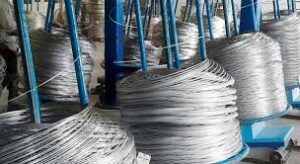Introduction
In recent years, the way we consume television has undergone a significant transformation. Traditional cable and satellite services have seen a decline, while Internet Protocol Television (IPTV) has emerged as a popular alternative. best iptv leverages internet connectivity to deliver television content, offering viewers greater flexibility, customization, and convenience. This article will explore the workings of IPTV, its advantages and disadvantages, and the future of this innovative technology.
What is IPTV?
IPTV stands for Internet Protocol Television. Unlike traditional broadcast methods that rely on satellite signals or cable transmission, IPTV delivers content over the internet. This method utilizes a combination of protocols to stream video and audio content, allowing viewers to watch live television, on-demand shows, and even recorded programming from a range of devices.
There are three primary types of IPTV services:
- Live IPTV: Similar to traditional television, this service allows users to watch live broadcasts of channels and events in real time.
- On-Demand IPTV: This service enables users to select and watch content whenever they choose. It includes movies, series, and recorded programs.
- Time-Shifted IPTV: This feature allows users to watch content that was broadcasted earlier, giving them the option to catch up on missed shows.
How IPTV Works
IPTV operates through a series of interconnected technologies and processes:
- Content Acquisition: IPTV providers acquire content from various sources, including networks, studios, and content distributors. This can include live broadcasts, movies, and TV shows.
- Encoding and Compression: The content is then encoded and compressed to reduce file sizes, enabling efficient transmission over the internet. Various codecs, such as H.264 or H.265, are used to maintain quality while minimizing bandwidth usage.
- Content Delivery: The encoded content is transmitted to the user’s device via broadband internet connections. This can be done through different methods, including streaming protocols like HTTP Live Streaming (HLS) or Real-Time Streaming Protocol (RTSP).
- Decoding and Playback: Upon reaching the user’s device, the content is decoded and played back on televisions, smartphones, tablets, or computers. Users can access IPTV services through dedicated set-top boxes, smart TVs, or applications on their devices.
Advantages of IPTV
IPTV offers several benefits that make it an attractive choice for viewers:
- Flexibility and Convenience: Viewers can access their favorite content on various devices and at any time, eliminating the constraints of traditional broadcasting schedules.
- Customizable Packages: IPTV providers often offer customizable subscription packages, allowing users to select channels and content that cater to their preferences.
- High-Quality Streaming: With the use of advanced compression techniques, IPTV can deliver high-definition (HD) and even ultra-high-definition (UHD) content, enhancing the viewing experience.
- Interactive Features: IPTV services frequently come with interactive features such as pause, rewind, and record, enabling users to engage with content in ways that traditional TV cannot provide.
- Cost-Effective Options: Many IPTV providers offer competitive pricing compared to traditional cable or satellite services, making it an appealing choice for budget-conscious viewers.
Disadvantages of IPTV
Despite its advantages, IPTV also has some drawbacks:
- Reliance on Internet Connection: A stable and high-speed internet connection is essential for optimal IPTV performance. Slow or unreliable connections can lead to buffering and poor-quality streams.
- Potential for Service Disruption: IPTV services may be subject to interruptions due to internet outages or technical issues, unlike traditional services that have dedicated infrastructure.
- Legal Concerns: Some IPTV providers may offer unauthorized access to copyrighted content, raising legal issues for users. It’s crucial to choose legitimate services to avoid potential legal ramifications.
- Limited Availability: In certain regions, especially rural areas, high-speed internet may not be accessible, limiting the feasibility of IPTV.
The Future of IPTV
As technology continues to evolve, so does the potential of IPTV. The growing adoption of 5G networks is expected to further enhance streaming quality and reduce latency, enabling a seamless viewing experience. Additionally, advancements in artificial intelligence and machine learning could lead to more personalized content recommendations, making it easier for users to discover new shows and movies.
The rise of smart home devices and the Internet of Things (IoT) will also play a crucial role in the future of IPTV. Integration with voice-controlled devices and smart TVs will streamline the user experience, allowing for effortless navigation and content access.
Conclusion
IPTV represents a significant shift in how we consume television content, offering flexibility, convenience, and a wide range of viewing options. While there are challenges to overcome, the advantages of IPTV make it an increasingly popular choice for modern viewers. As technology advances, IPTV is poised to become an integral part of the entertainment landscape, shaping the future of television viewing for generations to come.



